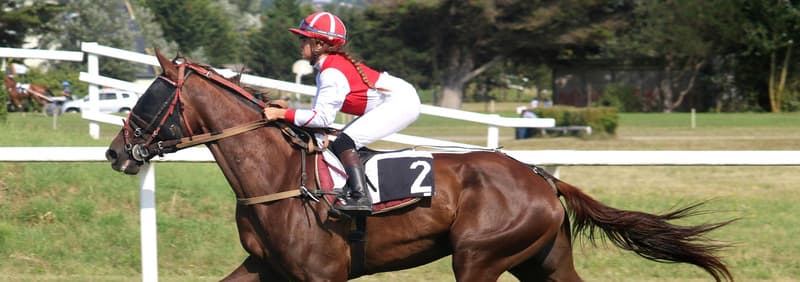Betting Types and What They Mean

The Ups and Downs of Horse Race Betting
Horse racing—often called the “Sport of Kings”—has long gone hand in hand with betting. For many racegoers, a small wager adds extra excitement to the day. But beneath the surface, the betting world is deep, varied, and full of nuance.
Whether you’re a beginner placing your first bet at Cheltenham or someone trying to sharpen your strategy, understanding the different bet types and how odds work is key to enjoying and improving your betting experience.
Fixed Odds vs Tote Betting
Fixed Odds Betting
This is the most common form of betting in the UK, used by bookmakers both online and at the racecourse.
-
How it works:
You’re offered a price (e.g. 5/1) when you place the bet. If your horse wins, you get paid at those odds, regardless of any later changes. -
Pros:
- You know your potential return before the race.
- You can compare odds across bookies.
-
Cons:
- If odds drift (i.e. increase), you don’t benefit—unless you’ve taken “Best Odds Guaranteed”.
-
Best Odds Guaranteed (BOG):
Many UK bookies offer this perk. If the Starting Price (SP) is bigger than the price you took, you’ll get paid out at the higher odds.
Tote (Pool) Betting
Tote betting works differently and is common at UK and Irish racecourses and online.
-
How it works:
All bets of a certain type go into a pool. After the race, the pool is divided among winning bets, minus a deduction. You don’t know your final odds until after the race. -
Pros:
- Can offer better returns on outsiders.
- Bookmakers can’t refuse your bet.
-
Cons:
- You don’t know your return in advance.
- Favourites often pay less than expected.
-
Tote products include: Tote Win, Tote Place, Exacta, Trifecta, Placepot, Quadpot, Scoop6.
Fundamental Bet Types
Win Bet
-
What it is:
The simplest bet. Back a horse to win. If it finishes first, you collect. -
When to use it:
Best when you’re confident about one selection and want the full return.
Each-Way (EW) Bet
This is two bets in one:
-
One on the horse to win.
-
One on the horse to place (finish in top 2, 3, or 4 depending on the race).
-
How it works:
A £5 each-way bet costs £10. You win the place part if your horse finishes within the specified places. -
Place terms:
- 5–7 runners: 1/4 odds, first 2
- 8+ runners: 1/5 odds, first 3
- Handicaps with 16+: 1/4 odds, first 4 (or more for big races like the Grand National)
-
Example:
£10 EW on a 10/1 shot with 1/5 place odds.- Wins: £100 win + £20 place = £120
- Places 2nd/3rd: £20 place only
- Finishes unplaced: no return
Forecast & Tricast Bets
Straight Forecast
- Predict the 1st and 2nd horses in the exact order.
- Higher difficulty, higher reward.
Reverse Forecast
- Back two horses to finish 1st and 2nd in any order.
- Costs double (e.g. £1 RF = £2 stake).
Tricast
- Predict the exact 1st, 2nd, and 3rd finishers.
Combination Tricast
- Same three horses in any finishing order.
- 6 bets in total (3 x 2 x 1 combinations).
These are great for competitive races with lots of runners—if you like a few horses but can’t split them.
Accumulators & Multiples
These bets link several selections together. All must win unless you’re using a system or full cover bet.
-
Double: 2 winners needed
-
Treble: 3 winners
-
4-fold Acca: 4 winners
-
And so on…
-
Patent:
3 selections = 7 bets (3 singles, 3 doubles, 1 treble) -
Trixie:
3 selections = 4 bets (3 doubles, 1 treble) -
Yankee:
4 selections = 11 bets (6 doubles, 4 trebles, 1 fourfold) -
Lucky 15 / 31 / 63:
Full cover bets with bonuses for just one winner.
Great fun and can produce big returns from small stakes—but the risk increases with each leg.
Tote Pool Bets
Placepot
Pick a horse to place in each of the first six races at a meeting. A very popular bet at festivals like Cheltenham.
- Low stakes, big pools.
- If your horse is a non-runner, you're transferred to the SP favourite.
Scoop6
Pick the winners of six races, usually on a Saturday.
- Often has big rollovers.
- Includes win and place parts.
Exacta & Trifecta
- Exacta: Pick 1st and 2nd in exact order.
- Trifecta: Pick 1st, 2nd, and 3rd.
These are the Tote versions of Forecast and Tricast.
Key Factors to Consider
Rule 4 Deductions
If a horse is withdrawn after you’ve placed your bet, a percentage may be deducted from your potential winnings. The deduction is based on the odds of the non-runner.
Non-Runners
Always check the latest runners—non-runners can affect market odds and deductions.
Going, Course & Jockey Form
- Some horses only run well on soft ground. Others prefer firm.
- Course specialists thrive at specific tracks.
- Hot jockeys and in-form trainers are always worth watching.
Headgear Changes
Blinkers, cheekpieces or a tongue-tie can improve (or hinder) a horse’s performance. Look out for first-time gear declarations.
Spotting Value
Betting smart isn’t just about picking winners—it’s about value. If a horse has a better chance than its odds suggest, that’s a value bet.
Final Thoughts
Horse racing betting can be thrilling and rewarding—but it pays to understand the mechanics. Whether you enjoy a flutter on a festival fancy or dive into daily multiples, learning how each bet type works gives you a far better chance of success.
For related reading, check out [[reading-form-cards]], [[handicap-explained]], and [[beginner-guide-to-betting]].
Last updated: 20th July 2025